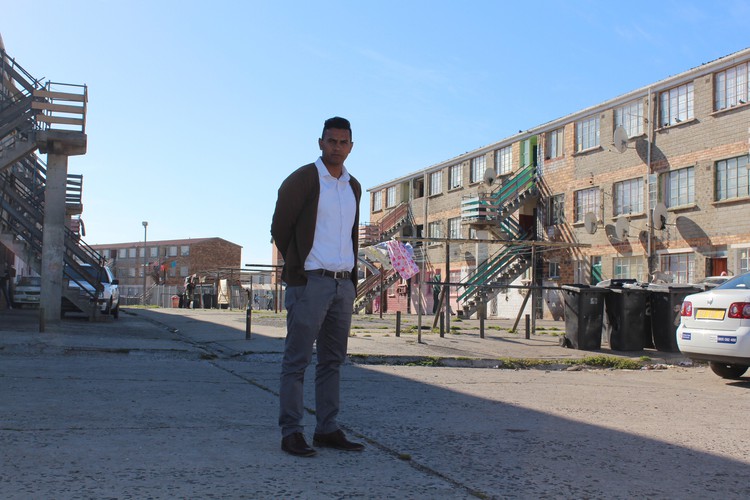Drug epidemic overloads state social workers
They make a big difference to people’s lives but the work is tough
“We don’t work under the easiest circumstances,” says 32-year-old Dominique Caswell. He’s a state social worker. He currently has 180 to 200 cases to deal with, though national norms say he should only be dealing with 60 cases. His work is focused on the problems caused by Cape Town’s drug epidemic.
He has been a social worker for eight years. He currently works for the Western Cape Department of Social Development’s office in Grassy Park but sees clients from over a dozen communities stretching from Capricorn and Lavender Hill to Pelican Park.
“Almost 70 to 80 percent of child protection cases we see would not need a social worker if substance abuse was taken out of the equation,” says Caswell, who recently completed his master’s degree on substance use in marginalised communities. “So often we see cases where there are multiple generations of drug users in one household. In this case, we have no choice but to remove the child.”
Substance abuse cases take a long time to resolve, explains Caswell. Daily he has to meet with clients and their families, educating them how substance abuse affects the household. He also runs group counselling and visits his clients’ homes.
“I am one of two substance abuse social workers, from Capricorn through Retreat, Steenberg to Pelican Park and all areas between there. It takes a lot of planning but it helps that I’m passionate about my work,” he said.
Caswell says it is important for social workers to be resilient and humble. Most of the communities he works in have serious socio-economic problems including high unemployment and gang violence.
He says the best part of the job is seeing his clients reach even the smallest milestones and getting a simple “thank you” from their relatives. “Seeing someone grow as a person and how their family dynamic changes is amazing. You will be surprised how much one person can impact so many people’s lives.”
Imelda April, who heads the social work services in metro south, has been a social worker for over two decades. She oversees about 33 social workers from the Far South, past Simonstown to Mowbray.
This area — called the greater Retreat intake area — had 454 new cases from 1 April 2018 to 31 March 2019. Of these, 118 were child neglect, 87 substance abuse and 65 older person abuse or needing urgent accommodation.
April explains what happens when they receive a call from police that a child has been raped. “The child is taken to a district surgeon to be examined medically.”
“While waiting to be seen by the district surgeon, which if you are lucky could be a few hours wait, the social worker attempts to find suitable placement for the children. Should a child be removed during the day, the placement needs to be done via court, if the role is not too full.
“Alternatively, the court proceedings might occur within 48 hours. In the latter cases the social worker has the authority to find placement for the children concerned, until court the following day.”
However, finding suitable placement is not always an easy process, April said. But there a few things to consider, she said. If a family member - often the first choice - is willing to take the children overnight, he or she still needs to be screened and their home assessed. This is done through the national department in terms of the Children’s Act 38 of 2005.
“This process is not always completed in a day,” she said. Alternatively, the children are placed with already screened safety parents for the interim.
To alleviate the load, April says her office is always looking for ways to partner with established faith-based organisations and non-governmental organisations in these areas to help provide services to families.
Support independent journalism
Donate using Payfast

Don't miss out on the latest news
We respect your privacy, and promise we won't spam you.
Next: How government officials spend public money on extravagant cars
Previous: Solid waste workers demand permanent jobs in Durban
© 2019 GroundUp.
This article is licensed under a Creative Commons Attribution-NoDerivatives 4.0 International License.
You may republish this article, so long as you credit the authors and GroundUp, and do not change the text. Please include a link back to the original article.

